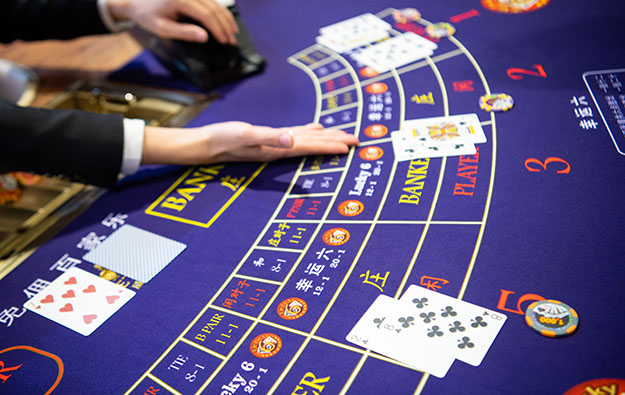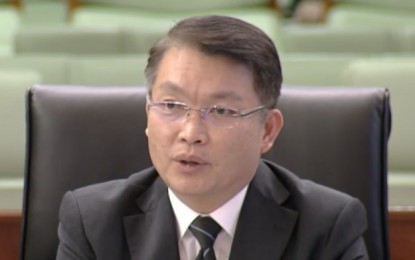Current Macau junket issues a supply side problem: GS
Oct 08, 2020 Newsdesk Latest News, Macau, Rest of Asia, Top of the deck

The junket sector in the Macau gaming market is currently in a different cycle compared with the gaming slump last seen in 2014 and 2015, as now the disruption “appears to be only seen on the supply side” because of China’s ongoing capital controls and scrutiny efforts, says Goldman Sachs (Asia) LLC. The institution said however that there was no “structural issue and/or substitutes” for land-based gaming in the medium term.
“We do not believe the current cycle is as severe as the one in 2014-15 when the anti-graft campaigns by the Chinese government affected both gaming demand (i.e., removal of grey income) and supply (i.e., credit crunch in a fragmented, highly leveraged junket system),” Goldman Sachs’ analysts Simon Cheung, Henry Chow and Alpha Wang wrote in a Monday note on gaming in the Asia-Pacific region. They noted that during the 2014-2015 gaming slump, both the demand and supply in the VIP and mass-market of Macau had been “hit hard” amid China’s anti-graft initiatives.
“This time around, the impact is mostly on the supply side, as greater difficulty in transferring money offshore by Chinese agents/players will likely result in junkets turning more cautious on credit extensions, with some already contemplating diversifying and changing their business model (e.g., Tak Chun acquired an equity stake in Macau Legend which owns three casinos in Macau),” added the Goldman Sachs team.
The analysts noted that the junket system in Macau is now “much more concentrated,” as the “top four players” account for about “80 percent” of the aggregate junket rolling volume in the market, with each of them being “much stronger financially.” According to the report, in the 2014-2015 period Macau’s junket market was “highly leveraged financially and much more fragmented,” and was in a “weaker financial position” and “more vulnerable to a market downturn.”
“As far as demand is concerned, while certain players may hold off their gambling trips near term until the situation stabilises, in view of the crackdown [in China] of illegal gambling activities and the introduction of a ‘banned player list’, we do not see any structural issue and/or substitutes for brick-and-mortar gambling in the medium term,” the analysts wrote.
Steadier growth
The report noted that VIP gaming – with “half” of their rolling volume driven by credit play – represents “33 percent” of Macau’s industry gross gaming revenue (GGR) and circa “9 percent” of its earnings before interest, taxation, amortisation and depreciation (EBITDA). The analysts estimated that in the event that “all credit play” was eliminated, that would only cut Macau industry GGR and EBITDA by 17 percent and 4 percent, respectively.
The Goldman Sachs team also said it believed Asia’s gaming markets could “grow more steadily” amid China’s ongoing capital control, being driven “predominantly by cash plays”.
The institution said additionally it remained “more constructive” on the outlook for the mass-market segment, as casinos’ direct VIP or premium mass segments could become a preferred choice for certain gamblers if “credit extension becomes less available.” It also suggested that the “secular” growth in the grind mass-market segment should remain intact as China’s capital outflow restrictions were likely not affecting this group of players, who spend on average only CNY5,000 (US$736) to CNY6,000 per trip.
The Goldman Sachs team said it expected Asia’s gaming markets to “fully recover” by 2022, achieving an aggregate GGR of US$53 billion in 2021, and growing to US$63 billion in 2022 – the latter similar to levels seen in 2019. “We expect a continued revenue mix shift toward the mass market, whose contribution should rise to 65 percent by 2022 (versus 59 percent in 2019),” stated the analysts.
Among the different gaming jurisdictions in Asia, those that generate more of their gaming revenue domestically – such as Malaysia and the Philippines – could likely experience a faster recovery; while those markets more reliant on Chinese VIPs “may take longer”, added the analysts.
Related articles
-
 Maybe Macau GGR softness amid political...
Maybe Macau GGR softness amid political...Nov 05, 2024
-
 NagaCorp bosses outline mass-market...
NagaCorp bosses outline mass-market...Aug 28, 2024
More news
-
 Macau to get 36mln visitors in 2025:...
Macau to get 36mln visitors in 2025:...Nov 21, 2024
-
 Star Entertainment clinches US$130mln...
Star Entertainment clinches US$130mln...Nov 21, 2024
Latest News
Nov 21, 2024
Macau’s 2025 visitor tally could reach 36 million, or a circa 9-percent gain on this year’s projected 33 million. So said Lei Wai Nong (pictured in a file photo), the city’s Secretary for...Sign up to our FREE Newsletter
 (Click here for more)
(Click here for more)
Pick of the Day
”As we navigate the final steps of the licensing process, we remain confident in our ability to align with Brazil’s regulatory requirements”
Eusebio Tanco
Chairman of DigiPlus Interactive
Most Popular
 Gaming technology firm IGT reports hacking incident November 21, 2024
Gaming technology firm IGT reports hacking incident November 21, 2024  US$30bln 2025 GGR target achievable for Macau: CE November 19, 2024
US$30bln 2025 GGR target achievable for Macau: CE November 19, 2024  Marina Bay Sands projects 40pct EBITDA leap post extension November 20, 2024
Marina Bay Sands projects 40pct EBITDA leap post extension November 20, 2024  Macau big-event outdoor venue gets trial run Dec 28: CE November 20, 2024
Macau big-event outdoor venue gets trial run Dec 28: CE November 20, 2024  Future of gaming is the online format: Pagcor chairman November 20, 2024
Future of gaming is the online format: Pagcor chairman November 20, 2024









